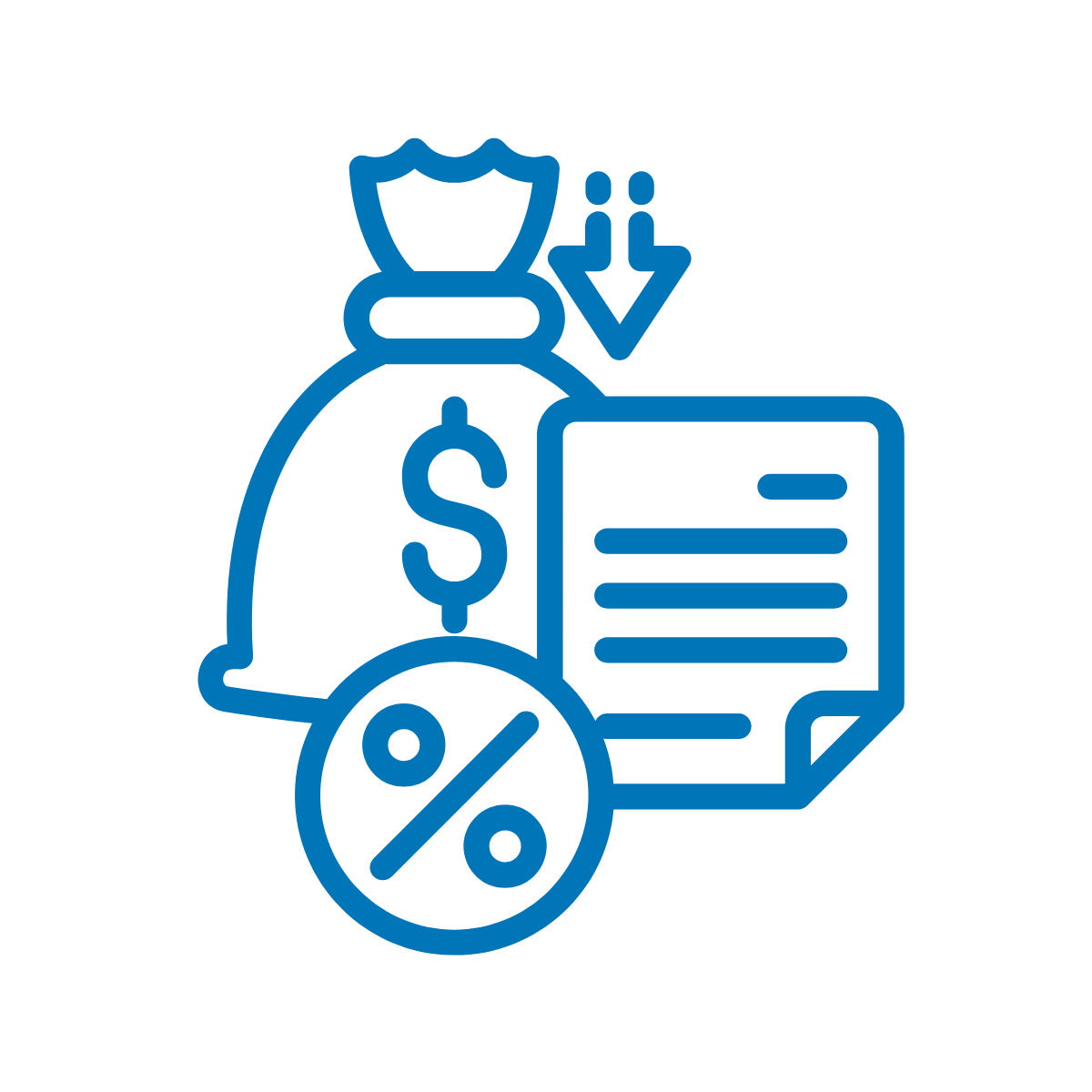Debt Consolidation Loans have become a pivotal solution for many individuals who aim to simplify their financial landscape. The increasing complexity of financial obligations has made it challenging for individuals to navigate multiple debts efficiently. Leveraging debt consolidation loans can be the key to unlocking a streamlined approach to managing these obligations. For those unfamiliar with this financial solution, it’s essential to understand what it entails and how it can potentially transform your fiscal well-being.

This guide provides comprehensive information about debt consolidation loans, their benefits, and the considerations one should make before opting for one. With the correct information, you can decide whether this solution suits your unique financial situation.
What is a Debt Consolidation Loan?
A Debt Consolidation Loan is a financial tool that allows individuals to combine multiple debts into a single loan. The primary goal of such loans is to simplify the repayment process. Instead of managing various due dates and interest rates, individuals have a single monthly payment to focus on.
Additionally, a consolidation loan often comes with a lower interest rate than the combined rates of the original debts. This makes repayments more manageable and can result in significant savings over time. Exploring options like online debt consolidation can be a practical step forward for those looking to streamline their financial obligations.
How do debt consolidation loans work?
The principle behind debt consolidation loans is straightforward. An individual takes out a new loan with better terms or a lower interest rate to pay off multiple smaller debts. Once this is done, the person is left with the consolidation loan to repay.
This loan functions like any other loan: a set interest rate, a defined loan term, and a monthly repayment amount. Institutions offering debt consolidation loans ensure the times are favorable to the debtor, aiming to provide a better alternative to managing multiple payments.
Benefits of Debt Consolidation Loans
Harnessing the power of Debt Consolidation Loans can offer many advantages to individuals grappling with multiple debts. Firstly, they provide a simplified payment structure. A consolidated monthly payment is established rather than juggling various payments with varying due dates. This can significantly reduce the chances of missed or late payments, offering a stress-free management process.
Furthermore, another noteworthy benefit is the potential for a reduced interest rate. Since the best debt consolidation loans often come with competitive interest rates, individuals can pay less over the loan’s duration than the combined interest from individual debts. This can translate into substantial savings, enhancing one’s financial health and stability.
Advantages and Disadvantages of Debt Consolidation Loans
Advantages of Debt Consolidation Loans:
- Potential for Lower Interest Rates: Debt consolidation loans offer a lower interest rate than high-interest credit cards or loans. Over time, this can result in significant savings and expedite debt repayment
- Simplified Payment Process: One of the most immediate benefits of debt consolidation is the convenience of converting multiple monthly payments into a singular, predictable income. This can simplify budgeting and reduce the stress of managing various debts.
- Fixed Repayment Schedule: With a consolidation loan, you usually get a fixed repayment term ranging from 3 to 5 years. This clarifies the debt-free date and can be motivational for some borrowers.
- Potential Credit Score Improvement: By consolidating credit card debt and maintaining timely payments on the consolidation loan, borrowers can see an improvement in their credit utilization ratio—a significant factor in credit score calculations.
Disadvantages of Debt Consolidation Loans:
- Extended Repayment Period: While consolidating can lower monthly payments, it might open the repayment period. This means the borrower could pay more interest over the loan’s lifespan.
- Potential for Higher Total Interest: The total interest cost can increase if the consolidation loan’s interest rate is higher than some of the original debts or if the repayment term is significantly extended.
- Risk of Asset Loss with Secured Loans: If one uses a secured loan (like a home equity loan) for consolidation, there’s a risk associated with potentially losing the collateral (e.g., a house) in case of default.
- Doesn’t Address Root Causes: Consolidating debt doesn’t necessarily address the financial behaviour or circumstances that led to debt accumulation. Without a change in financial habits or addressing the root cause, there’s potential for falling back into debt
- Potential fees: Some debt consolidation loans may come with origination fees or penalties for early repayment. It’s crucial to factor in these costs when considering the overall benefit of the consolidation loan.
Remember, while debt consolidation can offer relief for many, it’s essential to consider both the pros and cons and consult with financial advisors or trusted resources to make an informed decision.
Can I consolidate my debt if I have bad credit?
Certainly, consolidating debt with bad credit is a manageable challenge. Specific debt relief loans are designed to assist individuals with poor credit scores. However, it’s essential to be aware that interest rates may be higher due to the increased perceived risk by lenders.

That said, several dedicated platforms and strategies exist to get approved for bad credit loans. These platforms understand that everyone deserves a chance to improve their financial health. Therefore, they offer tailored solutions for those with adverse credit histories, ensuring they, too, can benefit from debt consolidation.
What can debt consolidation loans be used for?
Debt consolidation loans are versatile and can be used to pay off various types of debt. This includes credit card balances, personal loans, medical bills, and student loans. It’s essential, however, to carefully review the terms of your student loan consolidation to ensure it’s the best decision for your circumstances.
By amalgamating multiple debts into one, individuals can streamline their finances, making it easier to budget and manage their monthly outgoings. Whether for credit card refinancing or merging diverse personal loans, a consolidation loan is designed to bring clarity and simplicity to one’s financial realm.
What are my alternatives to a debt consolidation loan?
While Debt Consolidation Loans offer an effective route to streamline debts, other solutions are available. If you’re contemplating alternative strategies to manage your financial obligations, here are some options:
- Credit Counseling: Engaging with a credit counselling agency can guide budgeting and debt management. They might also assist in setting up a debt management plan, wherein you make monthly payments to the agency which pays your debts.
- Balance Transfer Credit Cards: These credit cards offer low introductory interest rates. One can save on interest costs by transferring balances from high-interest credit cards to a balance transfer card. However, paying off the balance before the promotional rate expires is essential to avoid potentially higher interest rates.
- Home Equity Loans or Lines of Credit: For homeowners with equity in their homes, tapping into this equity to pay off debts can be an option. But tread with caution, as defaulting on such loans can risk the loss of your home.
- Borrowing from Retirement Funds: Some retirement plans allow members to borrow against their savings. While this provides immediate relief, it can impact your long-term retirement plans and might come with tax implications.
For those with specific loan requirements based on location or profession, platforms like Myanydaycash offer diverse solutions, such as loans for military members with bad credit or region-specific loans like bad credit loans in Maryland.
Steps to Take Before Choosing a Debt Consolidation Loan
Before diving into the world of debt consolidation, it’s prudent to follow a series of steps to ensure you’re making an informed decision:
- Assess Your Financial Landscape: Understand the total amount you owe, the various interest rates, and the monthly payments you’re currently handling.
- Check Your Credit Score: Knowing your score can provide insights into the interest rates you’re likely to qualify for.
- Research Potential Lenders: Beyond banks, debt consolidation organizations, and online platforms offer these services. Understand their terms, fees, and customer reviews.
- Calculate Potential Savings: Utilize online calculators or consult with financial experts to discern the potential savings or costs associated with a consolidation loan.
- Seek Financial Counseling: This can offer a holistic view of whether a consolidation loan is your best choice or if other debt solutions might be more suitable.
Tips for Managing Debt Post-Consolidation
Once you’ve consolidated your debts, adhering to the following strategies can ensure you remain on the path to financial wellness:
- Stick to a Budget: Ensure you spend within your means and avoid accumulating more debt.
- Prioritize Savings: Set aside a portion of your income for emergencies to avoid resorting to debt in unforeseen circumstances.
- Monitor Your Credit Score: Regularly reviewing your credit report can help ensure timely loan payments and rectify discrepancies.
- Avoid Accumulating New Debt: With cleared credit cards post-consolidation, resist the urge to max them out again.
To explore more on financial management, our extensive library at Myanydaycash offers in-depth resources on topics like loans for bad credit in Louisville, KY, or insights into no-credit-check loans in Knoxville, TN.
Conclusion
Navigating the complex realm of debts can seem daunting, but with tools like Debt Consolidation Loans, individuals have the power to simplify and regain control of their financial landscape. By understanding these loans’ intricacies, benefits, and potential pitfalls, one can make informed decisions to pave the way toward financial freedom. Whether you consolidate or adopt alternative debt solutions, the key lies in being informed, proactive, and committed to a debt-free future.
FAQs on Debt Consolidation Loans








